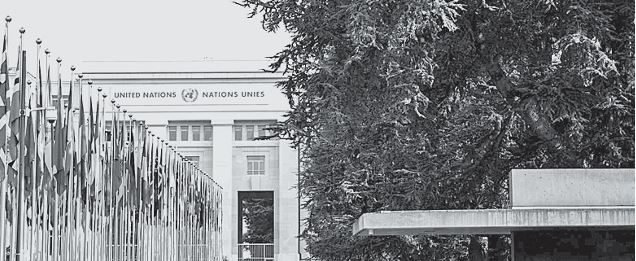By Avilash Roul
Is the UN institutionally relevant or intentionally viable during this unprecedented global uncertainty? A month ago, 83 heads of state, 41 heads of government, and ministers from 45 countries participated in and deliberated on assessing the UN during the 80th session of the UN General Assembly (UNGA) debates at UN Headquarters in New York. Undeniably, the proceedings have raised serious questions about the efficiency of the UN among Generation Z residing in active conflict zones. It is equally doubtful that the theme ‘Better together: 80 years and more for peace, development and human rights’ of the UNGA would galvanise the UN without an immediate tangible transformation of the world’s largest international organisation.
Is the UN risking its own legitimacy? Arguably, the UN faces new realities and new challenges after 80 years of its establishment. With impunity and on several occasions, bypassing the UN, the member countries drop bombs at their will and inflict terrorist activities, postponing and vetoing decisions of global importance, withdrawing or evading multilaterally agreed decisions and withholding financial commitments. While multiple threats persist, such as nuclear attack, terrorism, resource competition, and climate emergencies, along with the emerging singular risk of unregulated, all-pervasive artificial intelligence (AI) to nations, the most pressing concern is the threat to human security. This encompasses violations of human rights, rising poverty, growing inequalities, and the search for a dignified life, necessitating a new framework of global commitment, preferably after 2030.
However, increasing geopolitical rivalry, fissures in global alliances, the disappearance of internationalism and interminable armed conflicts, amplified by parochial nationalism and irrational protectionism, are posing a direct threat to the survival of the UN.
The ‘collective will’ of the UN has been severely punctured by the ‘sovereignty sacrosanct’ of the member countries. The UN has been bulldozed several times by its own members. Despite the UN headquarters in New York, the US denied a visa to the Palestinian President to attend the UNGA Session. Remember the WHO proposal to visit Wuhan during the COVID-19 pandemic to assess the origin of the virus, but it was instantly denied and delayed by the Chinese administration. The permanent members of the Security Council, or for that matter, 60 authoritarian countries and six totalitarian countries, the UN quite often needs the approval of the regimes to function smoothly in these countries. The only leverage the UN has of its financial and humanitarian aid to get going in the hundreds of member countries.
The host, founding member and the largest donor to the functioning of the UN, the US, has questioned the UN itself and its Charter as ‘empty words’ during the UNGA session. The US has withdrawn from the Paris Agreement on Climate Change, the WHO, the UN Human Rights Council, and UNESCO. Criticising the UN at the UN venues is not surprising, as it has been a routine to use the platform of the General Assembly to settle the brownie points.
Though the UN has largely been the tool in the hands of a few privileged member countries, it can’t be refuted that it is also a glimmer of hope for millions of destitutes and poorer member countries. Without the UN and its agencies, the progression of global environmental governance, at least, is unimaginable. Be it climate change, ozone depletion, hazardous materials, or biodiversity, the UN has been instrumental in facilitating treaty agreements and their implementations. It continues to do so despite severe financial cuts from the member countries, especially by the US, which owes $ 3 billion to the UN.
Outright rejection of the UN is a fool’s paradise. The UN has been navigating through the tumultuous equation and equilibrium of member countries since the Cold War, Post-Cold War and its unipolar moments and present complex multipolar ambitions. Certainly, the ‘Blue Berets’, UN Peacekeeping Force, is the success story operating in 50 missions with the largest contribution in terms of finance and personnel, both men and wom en, from India. At the heart of India’s foreign policy, according to the Minister of External Affairs, lies a commitment to peacekeeping – rooted in dialogue, diplomacy, and cooperation.
While the UN faces a ‘race to bankruptcy’ as its Secretary General lamented, or ‘trajectory of irrelevance’ as criticised by the former Indian permanent representative to the UN, the UN needs to reinvent itself in the present realities and future perspective. The failure of the League of Nations in preventing World War II gave birth to the UN. Not only expanding the UNSC permanent membership with equal powers, but the idea of the collective will of the post World War II needs to be rede fi ned and reformulated. Otherwise, the UN risks its own demise.
The writer is an international advisor on Transboundary Water and Climate Change Risk.






































